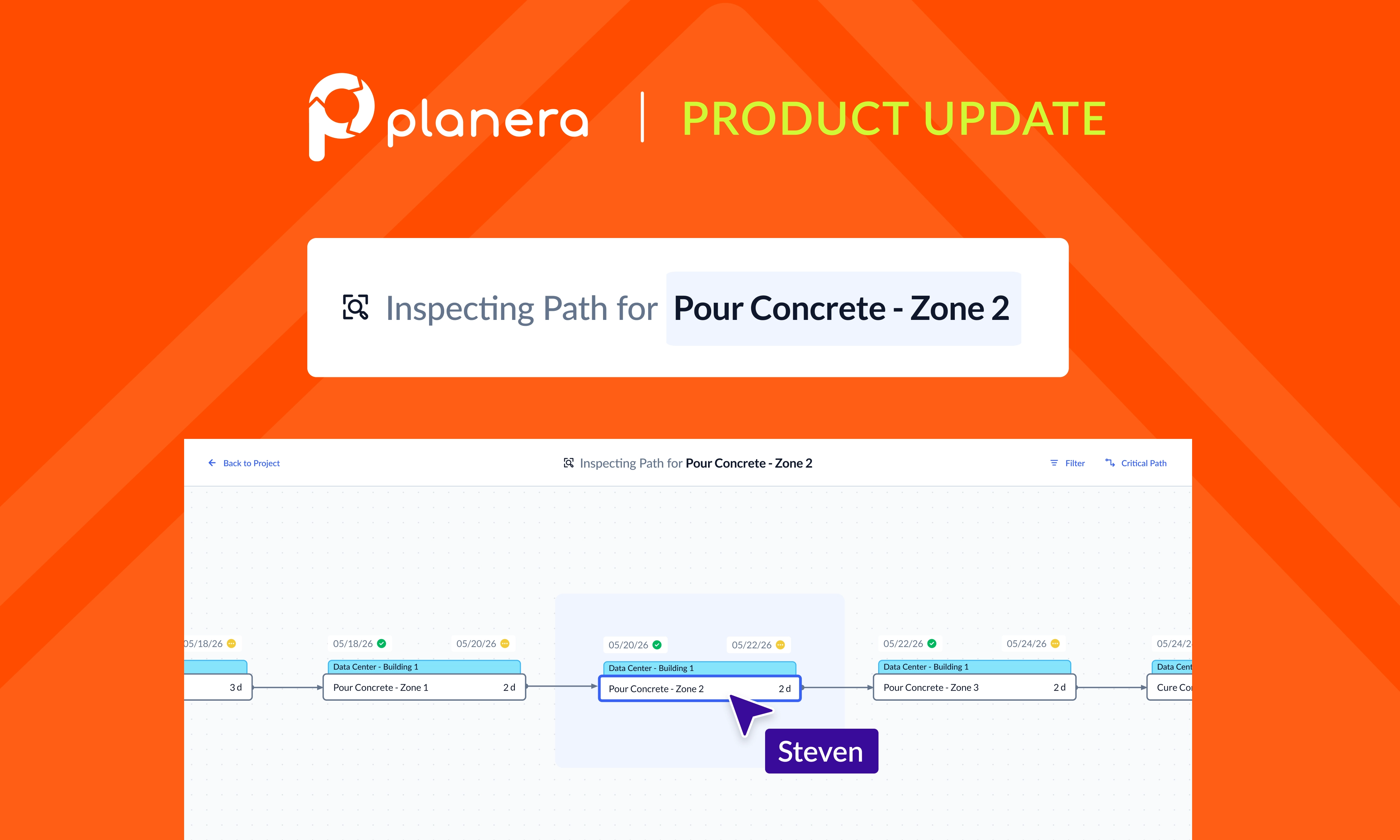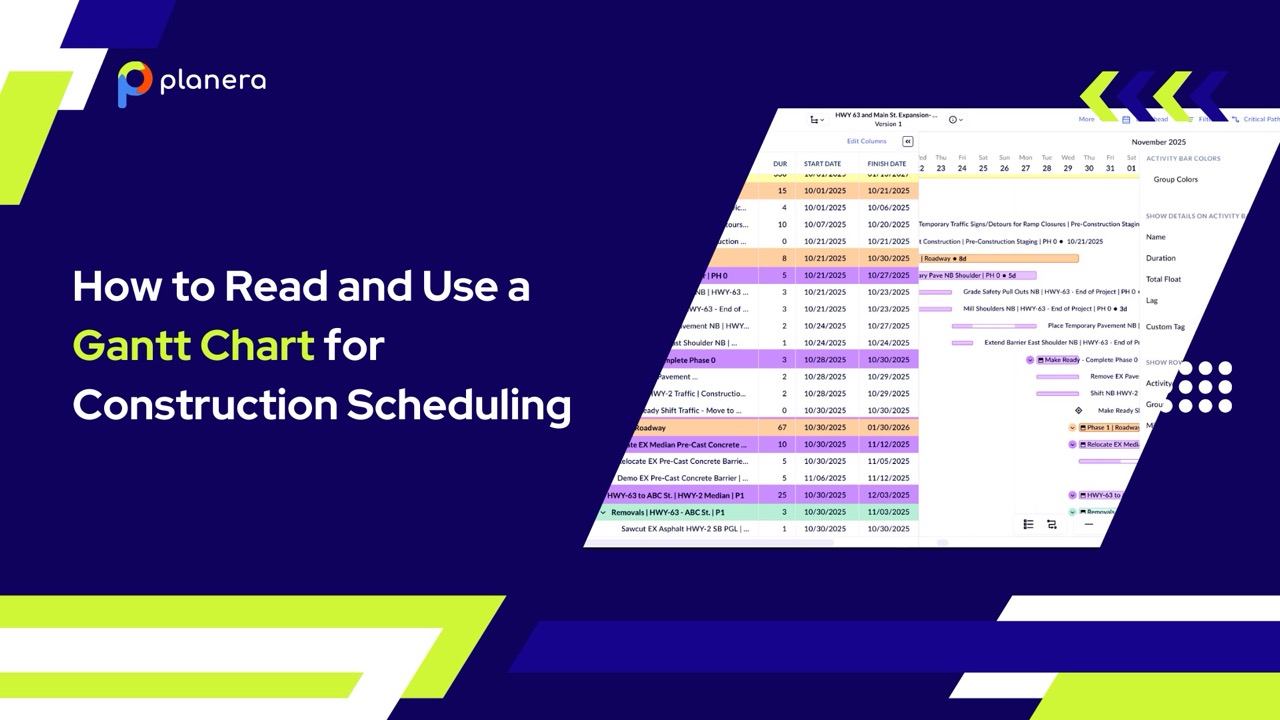Not a ‘Shiny Toy’: Contractor Overhauls Scheduling Without Hype

When Zachry Construction sought a new planning platform, they weren’t chasing trends—they were reinforcing a long-standing commitment to operational excellence. Their partnership with Planera reflects a strategic, field-first approach to project scheduling that empowers crews, standardizes practices, and accelerates decision-making across jobsites.
Mitchell Keller
Deputy Editor, International Construction
Originally featured in Construction Briefing.
When US-based contractor Zachry Construction (part of Zachry Corporation) rolled out new planning software in 2024, it wasn’t because the company wanted to experiment with artificial intelligence or farm for likes on social media.
It was because the company already spent more than one decade raising the standards of its internal project scheduling and finally found a tool that could keep up.
Zachry, which specialises in heavy civil and industrial contracting with a base of operations in Texas, partnered with scheduling software startup Planera, also based in the US, in mid-2024.
The pair just announced the partnership publicly, but Zachry noted the rollout was more than an implementation of new software.
“We don’t chase shiny new toys,” said Ranjeet Gadhoke, vice president of project controls at Zachry.
He added the use of advanced software was a deliberate and systematic decision meant to improve an already productive internal process. “Our systems are meant to empower the people who actually use them and enlighten the people who lead those people,” Gadhoke said.
Bringing Planera into the fold marked what he described as the fastest software rollout in his 18 years at the company, and the culmination of a process he started internally 15 years ago.
From scattered tools to structured scheduling
Gadhoke’s emphasis on purposeful technology stems from experience. After joining Zachry in 2008, he set out to improve what he saw as a mediocre scheduling culture.
He said the industry typically fell back on proximity bias when selecting scheduling and planning managers; that is, the roles were filled as needed by employees who (often) had no interest in or acumen with the task.
“We put anybody who could upgrade the software as a scheduler,” he told Construction Briefing. “But we never put the emphasis on the scheduling aspect of what we do in construction.”
In other words, scheduling had long been treated as a secondary software function rather than a strategic discipline; an administrative task instead of a core driver of project success.
For Gadhoke, ignoring that emphasis was precisely the problem.
“Scheduling is the only forward-looking tool in project controls,” he explained. “Everything else is reporting what already happened.
“If you want to influence outcomes, you start with the schedule.”
Gadhoke took it upon himself to make scheduling a viable professional track.
“I didn’t have any clout in the company, so I had to build it,” he said. “Over time I was able to hire professional schedulers who wanted to be schedulers.”
Eventually, he helped create a new department with guidelines, standards, and leadership under a newly appointed director of scheduling.
Gadhoke added, “That’s how we got to a point where our schedules on a project were really good quality; empowering the hands that build, enlightening the minds that lead.”
By the time Zachry engaged with Planera, they weren’t looking for a rescue: They were looking for alignment.
“They had already figured out their best practices and implemented them,” said Nitin Bhandari, CEO of Planera. “The data was clean. The vision was clear. That’s what you want in a partner.”
The immediate appeal for Zachry was Planera’s ability to consolidate labour and equipment schedules across multiple projects, offering a regional view of resource allocation.
“Resources are not unlimited,” Gadhoke said. “We never had that level of visibility before.
“With Planera, what used to take hours of manual aggregation now takes seconds.”
‘Field-first’, not ‘office-only’
One of the most impactful aspects of the partnership has been Planera’s evolving support for field teams. Planera’s newly launched tablet interface allows superintendents and trade partners to view and update schedules on site.
“For the first time, the field has high-fidelity access to the schedule,” Bhandari told Construction Briefing. “They can make real-time updates, track progress, and feed information directly back into the master schedule.”
Gadhoke agreed, noting that the platform has helped address gaps not just in enterprise-level planning, but also in short-interval, three-week lookaheads.
“Our big-picture schedules were strong,” he said. “But lookaheads were inconsistent. Everyone had their own Excel sheet. Planera is helping us close that gap.”
And the benefit isn’t just access; it’s timing and accountability. Gadhoke described a prior life where data was exported manually each Friday and compiled into reports that reached decision-makers the following Monday.
“Now, because everything’s already in the system, people can log-in directly,” he said. “[Planera] haven’t licensed it per user, which means more people – from field to office – are in the system at the same time.”
That immediacy has allowed Zachry to begin linking scheduling performance to project outcomes, even team incentives. “We’re tying bonuses to how well we manage resources. That’s only possible because we finally have a clear view across projects,” Gadhoke explained.
He continued, “Everyone from field leadership to project controls can now see how resources are flowing across 25 active jobs. That includes everything from crews to cranes. And when people know their decisions are visible and actionable, they plan more purposefully.”
Levelling up in project controls maturity
Gadhoke frames Zachry’s progress through four levels of project controls maturity: novice, lightly structured, fully structured, and value-generating.
He said Zachry is currently at level three – structured and standardised.
“You’ve got structure, you’ve got standards, and you can start looking at trends,” he said. “But level four is where that information starts influencing decisions in real time.”
Now, the company is in a position to exploit tools like Planera to help move into level four, Gadhoke added.
“Level four is where your information starts driving outcomes,” he said. “It’s where planning helps you improve safety, quality, and productivity. That’s the goal.”
Planera, for its part, sees Zachry as both a partner and a proving ground, meeting the software (in some cases) more than halfway to improve an already reliable product.
“We don’t just want customers,” said Bhandari. “We want people who push us to build something truly useful for the industry.”
In a market crowded with flashy tech solutions, Zachry’s Planera rollout offers a unique case of software adoption that was fast, but measured, and implemented with purpose.
You deserve better scheduling software
Powerful can be easy. Book a demo to see how.



